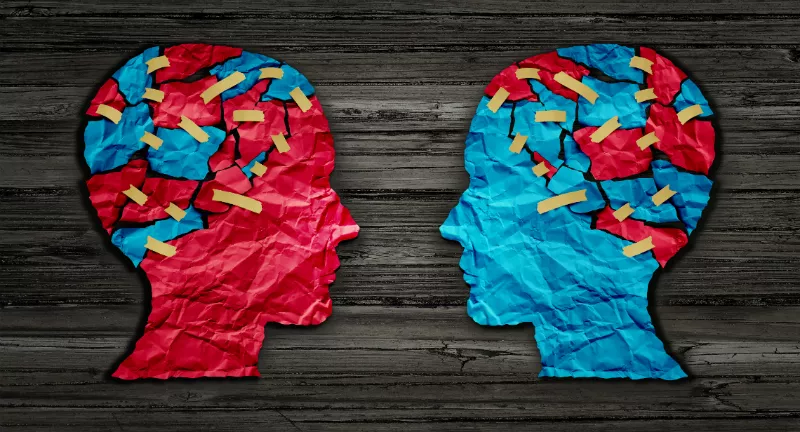Intercultural learning in adult education

David Mallows reflects on how intercultural learning can be made more effective to help migrants to integrate in their host countries and the local communities to be more culturally aware.
Critical awareness is key
The May EPALE podcast featured a discussion of intercultural learning in adult education. The context was migration in Europe. For the large numbers of adults arriving from other countries in Europe, understanding the culture of their new host community is very important. Intercultural misunderstandings, often caused by ignorance or misinformation, can have a detrimental impact on migrants’ confidence and subsequent ability to engage with their new society. Of course, cultures have boundaries, which can be used to distinguish between members and non-members of a group. Misunderstandings arise when a person who has been enculturated into one culture comes into contact with a very different one. This can lead to mistrust, fear and consequent xenophobia. Members of the host culture can perceive elements of migrants’ cultures as alien to them and this can place severe restrictions on their willingness to engage with and support migrants. In the worst of cases, this can lead to the development of negative responses and an unwillingness to accept those from other cultures, for no other reason than that they are ‘other’. In this context, adult educators should aim to develop critical awareness in all their students so that the adult population is capable of, and prepared to, question the dominant socio-economic culture, understand the roots of xenophobia and reject it.
Surface and internal culture
So, what is the role of adult education in this? We first need to consider what we mean by ‘culture’. It is common in England for places of education to ‘celebrate’ the many cultures of their students through public displays on noticeboards. What is placed on those noticeboards are usually images and texts about the five Fs – food, fashion, famous people, festivals, and flags. But what do the five Fs really tell us about a person’s, or a community’s culture? What do fish and chips or David Beckham really tell anyone about English culture?
The five Fs can be thought of as surface culture – culture that is visible, that we can see, touch and hear. This surface culture can be contrasted with internal culture, which is to do with beliefs and values, and ways of thinking. As opposed to surface culture, internal culture is often unconscious, in that we do not realise that the views we hold are determined culturally. It is also often subjective, with some elements shared with others in our ‘community’, but others being developed in response to our local, personal experiences. Most importantly for us here, while surface culture is explicitly learned and is subject to frequent changes, internal culture is learnt implicitly, largely though experience and is very difficult to change. This deeper form of culture might include the influence of religion, social norms and how they differ by context, different attitudes to young and old people, and shared historical understandings, even when these are ill-informed. These elements of culture are behind our day-to-day behaviour and many of the social decisions that we make.
So, as migrant adult educators, if we decide to teach about the host culture as part of an attempt to promote intercultural learning, we should do so through the values of our culture, not the symbols. Rather than discussing what happens on a particular day of national celebration, we should address social norms and how they impact on the everyday interactions that migrants experience, which, unexplained, have the potential to create barriers to integration and well-being.
Show, don’t tell
We should also remember that demonstration is more powerful than explanation. As representatives of the host culture, we should develop our own critical awareness of the host culture to make explicit the assumptions behind many of the day-to-day situations and interactions that migrants experience. In the EPALE podcast, my colleague Markus Palmen made the very good point that our classrooms themselves are cultural representations of how we conceptualise education. For migrants used to formal education systems, concepts of study circles or the incorporation of creativity in learning, or the less hierarchical nature of the classroom, with peer learning and assessment, can be a shock. Our assumptions about education may not be shared by those from other cultures, and this is the case in many aspects of daily life.
Integration is a two-way street
It is important that in our discussion of intercultural learning we do not take the view that this is all about migrants learning about ‘our’ culture. Integration is not just about giving migrants the tools to be able to succeed and fit in the new society, it is also about removing the barriers that stop them from doing so. Integration sometimes means old-style assimilation; the migrant abandons most of their culture and adopts the language, culture and practices of the host country. In other cases, integration is seen as a two-way process in which migrants and the host community adapt to each other. If we see integration as a two-way street, then adult education can play an important role by supporting adults of all communities in better understanding their own internal, hidden culture and the contrasts and possible tensions between that and other cultures in their community. Intercultural learning can be greatly supported through social interaction with members of the host community, in which elements of internal culture are made explicit and discussed.
In order for adult education to contribute to the development of a culturally rich, culturally aware, but harmonious society, we should attempt to involve the host community in migrant education programmes and we need to take a multicultural approach, highlighting, and so valuing, the cultures of migrants as well as that of the host community.
David Mallows has 30 years of experience in adult education as a teacher, teacher trainer, manager and researcher. He was previously Director of Research at the National Research and Development Centre for adult literacy and numeracy (NRDC) at the UCL Institute of Education, London and currently represents the European Basic Skills Network in EPALE as thematic coordinator for Life Skills.
Kommentarer
Getting host communities involved
(i) Yes, it does. But I think
Getting host communities involved in the intercultural exchange
Sex and sensitivity
I came across this fascinating article: https://www.zeit.de/zeit-magazin/leben/2017-02/sex-education-refugees-g… This is certainly a key topic for cultural and intercultural learning! And a good example how we need to combine knowledge and social norms
Gina
Thank you for the comments
Aktuāli
Thank you!
Thanks for the comment Karina
Excellent and very helpful
Par pieaugušo izglītību integrācijas jautājumos
I agree
Thanks for the comment Ināra.
I've asked Google to translate it for those of us who don't speak Latvian:
The article touches upon a very important and very modern society of issues of integration through cultural awareness. By working and explaining to young people the issues of various forms of cultural expressions, in this article I also found some useful lessons that one sees from the edge first of all with the other cultures of the people with which it is first associated with it. Here I found an explanation for this superficial or external view of culture and the inner one. And precisely this second is really the deepest vision that is most difficult to see and understand at once - views, values and way of thinking. It can only be discovered by being informed, not only while sitting in lectures, in classrooms, but rather by learning the specific culture of a particular nation in practice - by observing and thinking about what you see. One of the best ideas in this article is that cultural elements are at the core of our behavior and community decisions. But that's it. Indeed, the depth of the essence of each of these folk cultures can not be revealed only by knowing the symbols of a particular nation, but by learning cultural values that can be discovered only by matching, how people behave in daily life through social norms, and then, as it treats its traditions that make up its values.





Einladung - Netzwerk gegen Gewalt